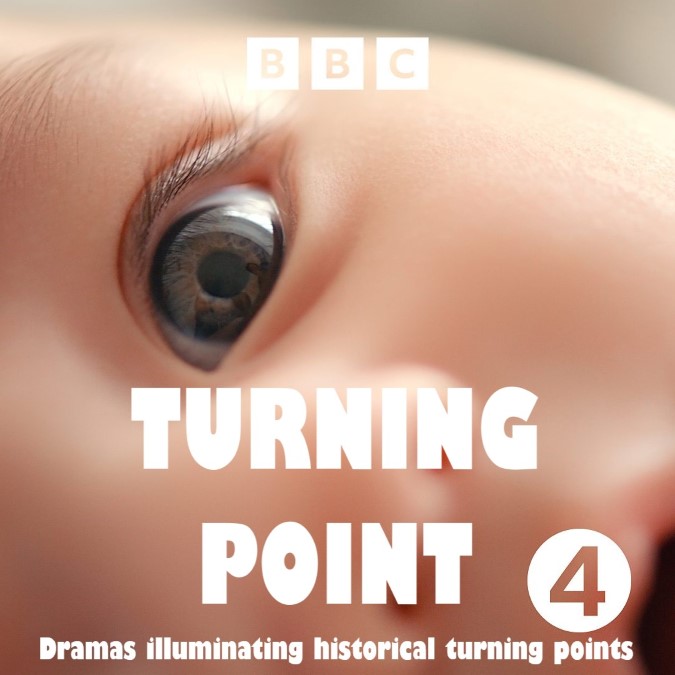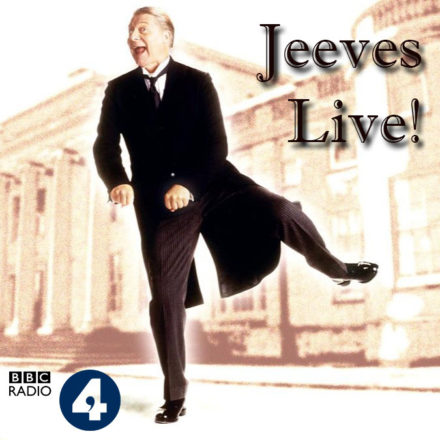Members get information about when streams/downloads become available, as well as accessing podcast RSS feeds for freely-available content to make listening to great shows a breeze, Register Here
First of Millions
The first of a collection of dramas illuminating historical turning points. Inspired by true events, writer Ryan Craig tells the story behind the pioneering science that led to the birth of the first IVF baby.
At the heart of a story which celebrates the science and people involved is the working relationship between Physiologist, Robert Edwards and Obstetrician, Patrick Steptoe. Both mavericks who came into conflict with the establishment they conducted much of their ground-breaking research in a make-shift laboratory at the Oldham hospital where Steptoe worked and where John and Lesley Brown were finally to become parents.
Wasps in a Jam Jar
Elspeth was married to Geoffrey Howe. She was the complete opposite of the other woman in his life, Margaret Thatcher. Elspeth was Chair of the Broadcasting Standards Commission and a vocal supporter of the homeless. She was a feminist, whereas Mrs Thatcher thought a woman’s place was in the home. This rivalry played a substantial part in Geoffrey Howe’s famous resignation speech in 1990. Arguably the speech was a major turning point in contemporary history. It meant the end of Mrs Thatcher. But most significant of all, the European battle lines in the Conservative Party were indelibly drawn that day. There’s a straight line from that speech to the Brexit referendum. This comedy drama by journalist Jonathan Maitland dramatises the events leading up to the speech.
A Ghastly Mistake
Born Elizabeth Forbes in 1912, Dr Ewan Forbes goes to the Scottish courts to protect his marriage, his practice and above all his claim to be heir-male to the Craigevar Baronetcy.
In 1967, John Forbes Sempill takes out a civil court case against his cousin, Ewan to establish his right to inherit the Baronetcy of Craigievar in Scotland – a title which could only be passed down the male line. Ewan, otherwise next in line, was registered at birth as Elizabeth, a girl. But, from the age of 6 he has lived as boy and man. A qualified GP he has successfully amended his birth certificate and married his housekeeper “Patty”.
The sudden death of Ewan’s older brother, William Baronet of Craigevar, instantly changes Ewan’s quiet rural life. His cousin challenges for the title, claiming that Ewan is female and cannot inherit. Ewan feels obliged to defend his position – to protect his marriage, his way of life and his identity.
The hearing may be held “in camera” out of the public gaze, but the testimony from the court records, reveals a disturbing personal examination and enquiry for both Ewan and Patty. The play presents their personal struggle to confirm Ewan’s gender and preserve the legality of their marriage against their moral obligations in the eyes of God to tell the truth, the whole truth and nothing but the truth.
Nicholas McInerney’s new play looks at the events of Ewan’s life through the eyes of the late Gwendolyn Forbes Sempill, formidable as Ewan’s mother and champion. It intertwines scenes from childhood with critical moments of the hearing taken verbatim from the court transcript.
Interpolated throughout the play are moments of verbatim testimony from people identifying as “trans”, from the 1950s to today.
Behind Beyond the Fringe
May 14th 1961 – Reviewing the hottest ticket in town, Observer theatre critic Ken Tynan effused: “Future historians may well thank me for providing them with a full account of the moment when English comedy took its first decisive step into the second half of the twentieth century.”
Like the ‘angry young’ novels and ‘kitchen sink’ dramas of a few years earlier, ‘Beyond the Fringe’ was a cultural and political turning point, introducing new voices and fresh attitudes to a generation hungry for change. ‘Beyond the Fringe’ not only transformed the style of British comedy, lighting the fuse of the satire boom, it also fired a broadside at The Establishment and sent a blast of fresh air through the fusty corridors of power. Before the Beatles made the 60s swing the Fab Four of comedy, Bennett, Cook, Miller and Moore opened the door to ‘the permissive society’, auguring the death of deference which still clung to paternalistic, post-colonial Britain.
Jeremy Front’s drama takes a look at how four young men were brought together to stage a comedy show and ended up staging a revolution.
With thanks to John and Josh Bassett for their help in researching the play.
The Fall
The extraordinary story of the mistake that caused one of the most significant turning points of the 20th century.
In November 1989 the repressive tyranny of the GDR ended and with it the Cold War, bringing in 33 years of peace – which only recently ended.
At a routine press conference on November 9, 1989, an East German spokesperson, Günter Schabowski, was handed an announcement about relaxed travel regulations for the people of East Germany. He mistakenly announced that the checkpoints in the Berlin Wall — which up until then were guarded by soldiers with orders to shoot anyone trying to cross — were now open. They weren’t, but that announcement was all East Berliners needed to storm the Wall and demand they be allowed to cross into West Berlin. After that, the Wall became obsolete, and soon fell.
This is a story of misguided good men doing their best, evil men doing their worst and an incompetent bureaucrat who accidentally changes the world.
First Folio
Mike Harris reimagines the collation of Shakespeare’s First Folio through the efforts of his colleagues John Heminges and Henry Condell.
The First Folio, which was published 400 years ago, gathers 36 plays for the first time – although how much was accurate and how much reinvented through memory and scraps of manuscript remains a subject of debate.
To add a bit of fun to the whole procedure, Mike Harris imagines a young girl – Rosalind – desperate to act and write in a world where it’s the last thing females would routinely be allowed to do….
Mae West
In 1926 Mae West wrote, directed, produced and starred in the smash hit Sex on Broadway. When she was arrested on stage the following year for “corrupting the morals of youth”, the subsequent court case led to a choice between apologising and paying a fine or going to jail for ten days. #
Mae chose the latter and it secured her legend.
While she was serving her time at Welfare Island she was invited to dinner with the Warden. This drama, based on those real events, imagines that dinner and celebrates the fabulous Mae West and her subsequent glittering career – writing her own lines in her movies, acting with casting approval over all her male co-stars, becoming the number one box office draw and the second richest person in America by 1935. All on her own terms.
She was a trailblazer, a warrior. A woman of power and property. A woman who refused to be silenced or let age diminish her importance. And yet her extraordinary achievements often seem to have been forgotten, despite the icons that followed in her footsteps – Marilyn and Madonna and young Miley naked on her wrecking ball.
Never Mind the Ballocks
When Nottingham Virgin Records displays the Sex Pistols album Never Mind The Bollocks in the window, the local police take offence. The local shop manager looks like he might take the rap when Virgin boss Richard Branson manufactures a row and the case goes to court.
The stage is set for a showdown between Sir John Mortimer QC and the local guardians of morality. And it’s more than just strong language that’s on trial.
Michael Eaton’s drama evokes England of the late 1970s – a time of strikes, poverty and power cuts. Against this background, the country’s attitude to the Sex Pistols, punk and the angry youth they represented is tested.
Regina v Searle was heard at Court Three at Nottingham’s Guildhall on the chill morning of November 27, 1977. Witnesses included artist Caroline Coon, and the stern Scottish Professor James Kinsley of Nottingham University, an expert in Medieval Linguistics.
Southall Uprising
Set in immigrant, working class Southall, West London during the highly charged racially divided climate of a late 1970s Britain, on the cusp of Thatcherism. 1976, the racist murder of teenager Gurdip Singh Chaggar led to escalating tensions between Black/Asian locals and the far right. On St. George’s Day, April 23rd 1979, Tory-run Ealing Council and the Labour government permit a National Front pre-election rally at the town hall, in the heart of Southall. In an act of determined resistance, the community peacefully sits down to stand up to racism, against ensuing police brutality that ultimately leads to the death of protesting New Zealand teacher Blair Peach.
2024 marks the 45th anniversary of the Southall Uprising, a turning point in the birth of an Asian/Black Britain. St. George’s Day 1979 is remembered for when this small, hard-working immigrant community fought back against the far-right and its calls for immigrant repatriation, forced to collectively defend and assert its right to live, work and exist in a new, emerging multicultural Britain.
Satinder Chohan’s drama is based on the true events and testimonies of people who attended the protest in 1979 and was recorded on location in Southall.
This Is for Everyone
Entertaining drama from award-winning writer Matthew Broughton exploring probably the biggest turning point in recent history: the creation of the World Wide Web, and its impact on one family in the decades that follow.
In August 1991, the first website goes live. At exactly the same time, a baby is born…
Episode List
- 01 – First of Millions
- 02 – Wasps in a Jam Jar
- 03 – A Ghastly Mistake
- 04 – Behind Beyond the Fringe
- 05 – The Fall
- 06 – First Folio
- 07 – Mae West
- 08 – Never Mind the Ballocks
- 09 – Southall Uprising
- 10 – This Is for Everyone



















